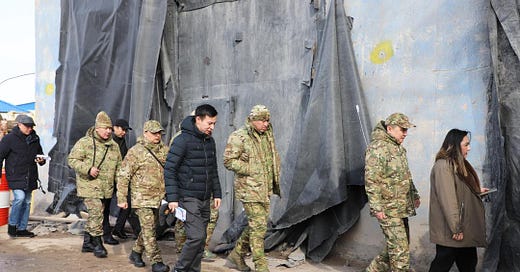Central Asia's week that was #42
Mining deaths in Kazakhstan, drone strike on pipeline, fuel shortages in Uzbekistan. Also, opposition arrests in Kyrgyzstan, Karakalpak activist freed, and CCTV cameras to combat school bullying.
So this happened…
Seven workers died following a collapse at a copper mine in central Kazakhstan’s Ulytau region. The accident was caused by a natural gas explosion at a depth of 640 metres, Deputy Prime Minister Kanat Bozumbayev told reporters. The mine is operated by Kazakhmys, one of the country’s larg…
Keep reading with a 7-day free trial
Subscribe to Havli - A Central Asia Substack to keep reading this post and get 7 days of free access to the full post archives.





